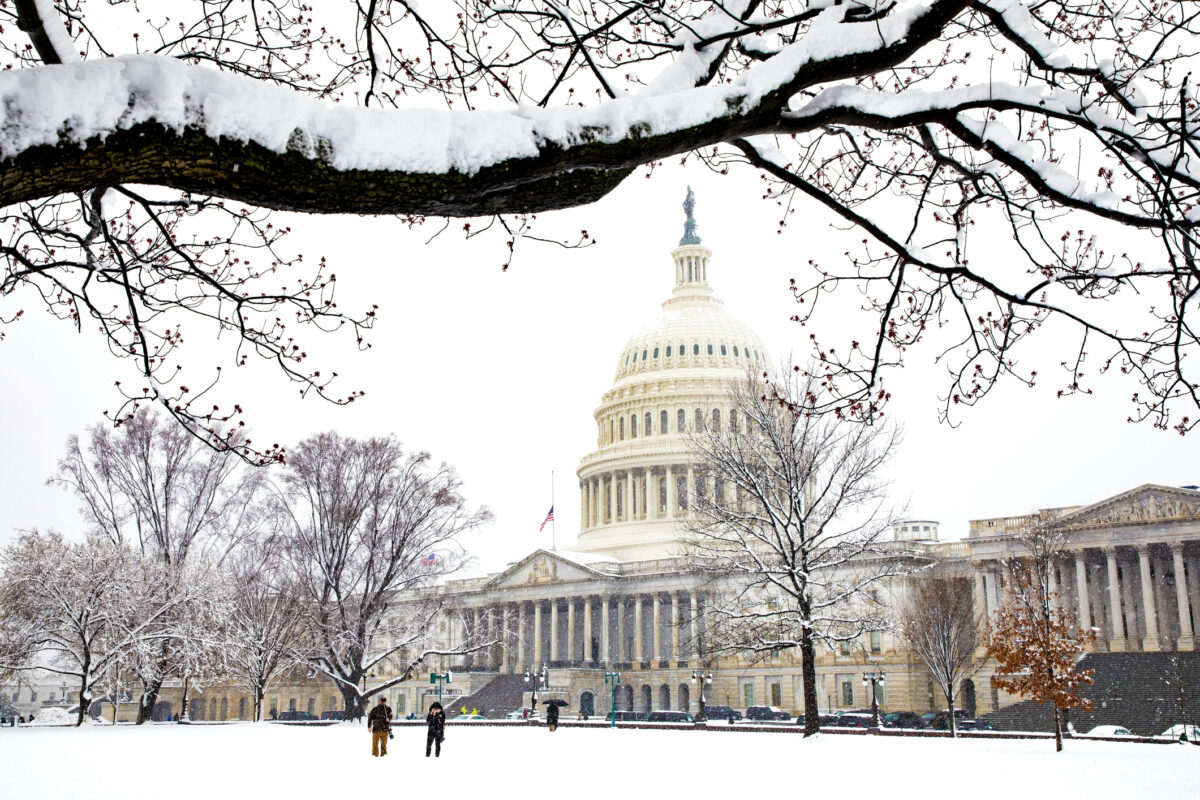IHEP VP of Policy Research Mamie Voight Testifies Before U.S. Senate Committee on Health, Education, Labor & Pensions
Published Jan 31, 2018
On January 30, 2018, IHEP Vice President of Policy Research Mamie Voight testified before the U.S. Senate Committee on Health, Education, Labor & Pensions (HELP) at a hearing entitled, “Reauthorizing the Higher Education Act: Accountability and Risk to Taxpayers.” Ms. Voight’s oral testimony is below. Click here to access the full written testimony.
“Thank you, Chairman Alexander, Ranking Member Murray and members of the Committee.
My name is Mamie Voight, and I am Vice President for Policy Research at the Institute for Higher Education Policy – or IHEP – a nonprofit, nonpartisan organization that promotes college access and success, particularly for underserved students.
IHEP also leads the Postsecondary Data Collaborative, a nonpartisan coalition of organizations representing students, institutions, states, employers, and privacy and security experts. Together, we seek to advance the use of high-quality data to improve student success and educational equity.
The research is clear: College investments pay off for students and for our country. Graduates earn more, pay more in taxes, and are healthier. College is a pathway out of poverty, with low-income students five times more likely to climb the economic ladder if they earn a degree.
Yet, where a student goes to college ultimately shapes her ability to climb that ladder. Research shows time and again that outcomes vary dramatically across institutions and programs—even those enrolling very similar students. For our most vulnerable students with the most to gain from college, and the most to lose if things go wrong, the stakes are high. And for taxpayers, counting on federal policymakers to responsibly steward their $157 billion-dollar higher education investment, the stakes are equally as daunting. Students and taxpayers should expect some degree of accountability to manage this risk. Instead, students, policymakers, and institutions cannot answer critical questions about which programs at which institutions provide an adequate return on investment, and for which students.
Any accountability system—whether it be market-based, incentive structures, or other systems—must be grounded in reliable evidence. This need for evidence holds regardless of who or what is driving the accountability system: student choice, the federal government, state governments, or accreditors. Yet, both students and policymakers must make decisions with incomplete information.
Imagine buying a car without knowing its fuel economy or safety rating. Now, imagine assisting a loved one trying to decide between two colleges. She asks questions like:
- Do part-time, Black students graduate?
- What types of schools do students transfer to?
- How do their graduates fare in the workforce?
Your loved one won’t be able to answer those questions because the available data are incomplete. And, right now, even as stewards of $157 billion dollars in federal investments, neither can you. And federal policy is what stands in the way of answering these questions – even though the data to answer them already exist.
Our data infrastructure is duplicative, inefficient, and excludes many students. Institutions and states have recognized the insufficiency of federal data and tried to plug the holes themselves. But piecemeal, voluntary reporting isn’t enough. In a state like Virginia, many residents would be missing in state-based employment data just because they work for the federal government or across state lines in Maryland or DC.
Recent federal attempts to measure workforce outcomes are insufficient too, because they omit the thirty percent of students who do not receive federal financial aid. By not counting all students, these metrics produce incomplete results, ignore non-aided students’ needs, and stymie efforts to evaluate equity.
A better, more complete solution exists. A secure, privacy-protected postsecondary student-level data network, like the one proposed in the bipartisan College Transparency Act, would integrate existing federal, state, and institutional data sources into a more coherent, nimble, secure, and privacy-protected network. It would leverage existing systems to create better information that counts all students, while reducing reporting burden on institutions. More than 130 organizations, representing students, colleges, veterans, and employers, have endorsed the College Transparency Act, recognizing that it would create a more functional postsecondary marketplace and empower actors across the system.
The federal government is uniquely positioned to compile better postsecondary information. It is the only entity with comprehensive workforce data, including for students who cross state lines, and the only entity that can collect consistent, comparable data from colleges across the country.
Good policy and good decisions are grounded in good evidence, transparency, and accountability.
As you work to reauthorize HEA, consider the questions you want to ask, but cannot answer. Consider your role in protecting students and taxpayers. And consider the student whose college choice will define her future. Please safeguard taxpayer investments, help students climb the economic ladder, and secure their future. Thank you.”


